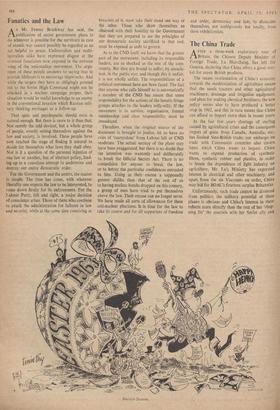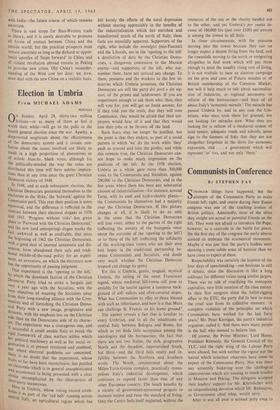The China Trade
AFTER a three-week exploratory tour of Britain, the Chinese Deputy Minister of Foreign Trade, Lu Hsu-chang, has left for Geneva, declaring that China offers a good mar- ket for many British products.
The recent reorientation of China's economy towards the modernisation of agriculture means that she needs tractors and other agricultural machinery, drainage and irrigation equipment, and plant for making chemical fertilisers; the new policy seems also to have produced a better crop in 1962, and this in turn means that China can afford to import more than in recent years.
In the last few years shortage of sterling caused by agricultural crises and the consequent import of grain from Canada, Australia, etc., has limited Sino-British trade; our embargo on trade with Communist countries also covers items which China wants to import. China wants to expand production of synthetic fibres, synthetic rubber and plastics, in order to lessen the dependence of light industry on agriculture; Mr. Lu's Ministry has expressed interest in electrical and other machinery, and apart from the six Viscounts on order, China may bid for BOAC's fourteen surplus Britannias.
Unfortunately, such trade cannot be divorced from politics; the military potential of these planes is obvious and China's interest in them reflects more directly than the rest of her `shop- ping list' the quarrels with .her Soviet ally and Sinister Season. with India—the future course of which remains uncertain.
There is vast scope for Sino-Western trade in theory, and it is surely desirable to promote all forms of contact between China and the outside world; but the practical prospects must remain uncertain as long as the diehard or oppor- tunist apostles of 'leaps forward' in China and of violent revolution abroad remain in Peking to provoke new crises. Old China's misunder- standing of the West cost her dear; we, now, must deal with the new China on a realistic basis.



































 Previous page
Previous page